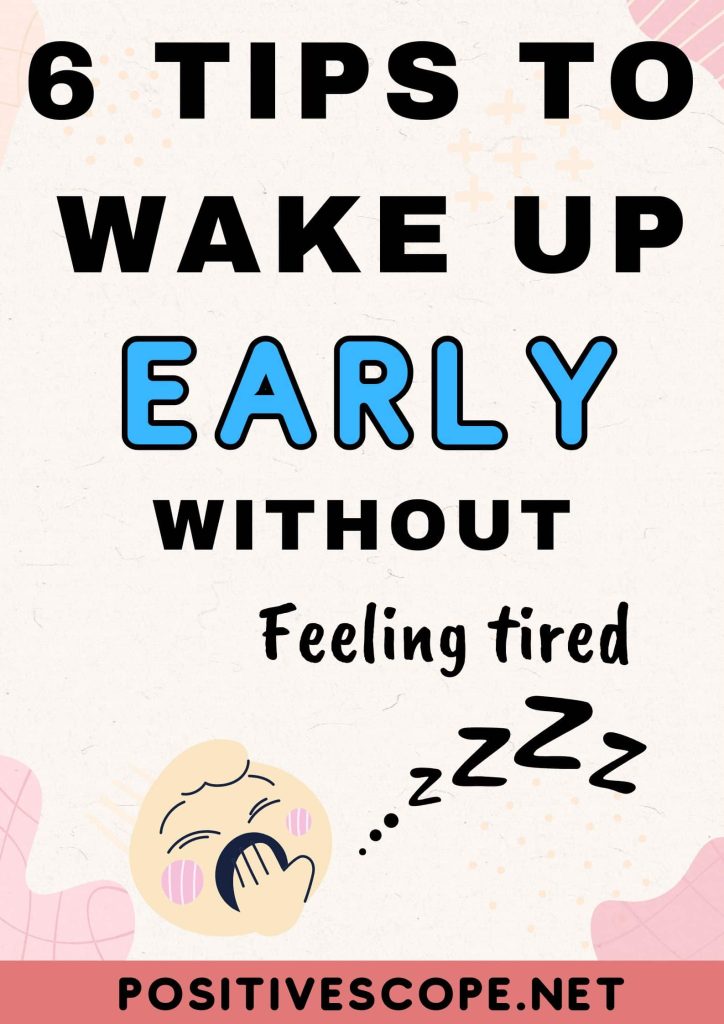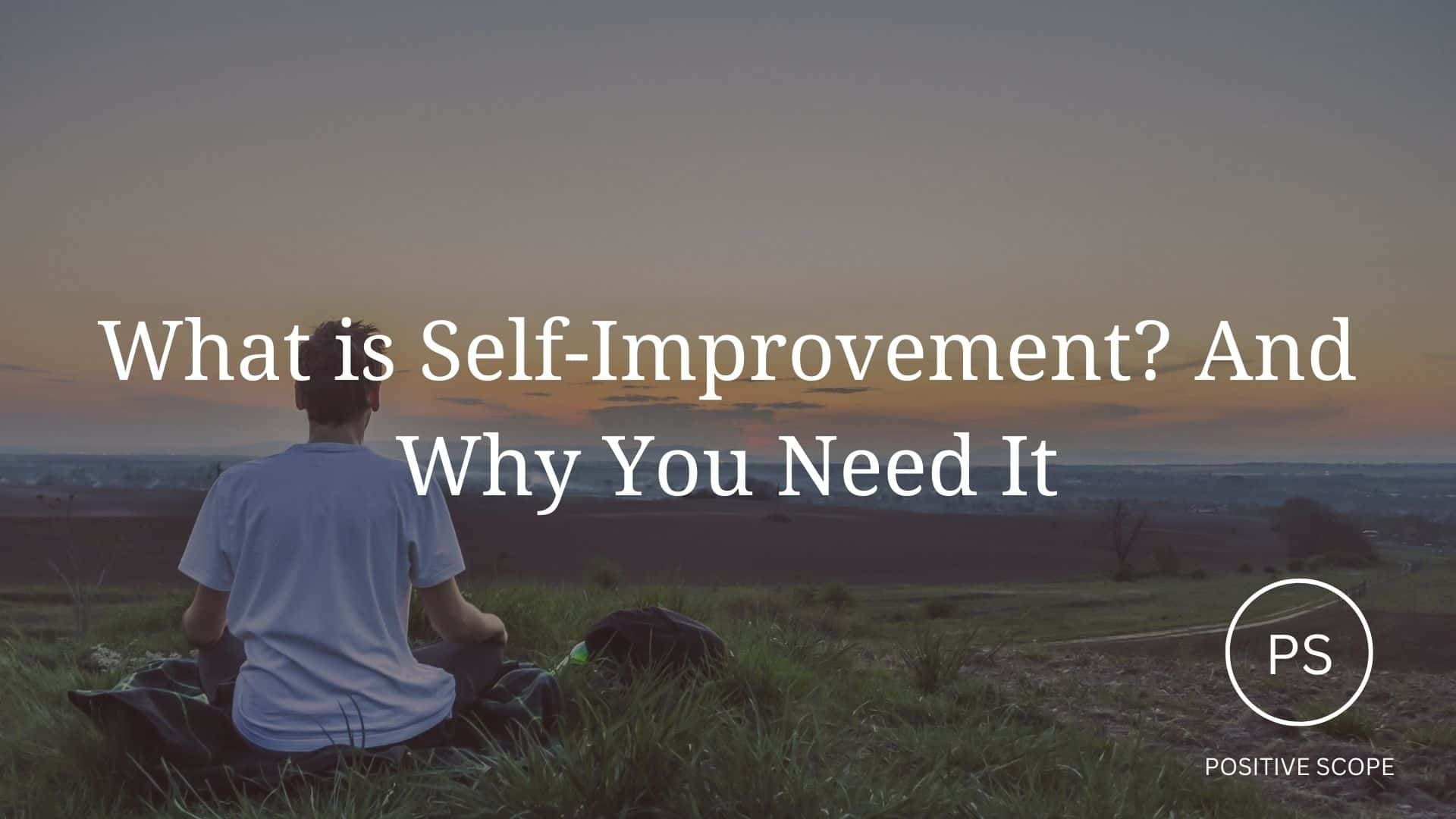How To Wake Up Early In The Morning And Not Feel Tired (6 Easy Steps)
It’s the morning. You’re tired. You can’t move.
But you’ve got to get out of bed and get to work.
You don’t have time to prepare for it, because you’re already late. You need to rush out the door as soon as possible. Otherwise, it’ll be too late!
It’s like this every day; you can’t win.
Many people struggle to wake up early in the morning, especially if you’re not a “morning person.”
But starting your day off on the right foot is essential for setting the tone for the rest of the day.
Whether you’re trying to improve your productivity or want to feel more refreshed and energized, several proven strategies can help you wake up early without feeling tired.
This article will share some of the most effective tips and techniques for waking up early and starting your day off right.
So, read on if you’re ready to say goodbye to groggy mornings and hello to a more energized and productive you.
HOW TO GET UP EARLY AND NOT FEEL TIRED
If you’re like many people with a 9-5 job that you work five days a week, you may not have a morning routine in place. This can lead to chaotic and unproductive mornings, leaving you feeling stressed and unprepared for the day ahead.
Have you ever set your alarm for more than six hours in advance, or felt excited to wake up in the morning?
Can you remember the last time you had enough time to enjoy a healthy breakfast that gave you energy for the day?
Think about how often you wake up looking forward to the day ahead.
Are you satisfied with your current morning routine, or is it time for a change?
Take a moment to consider these questions and be honest with yourself.
The bottom line is that no amount of advice or strategies will matter if you don’t change your attitude towards mornings. It’s that simple and straightforward.
WRITE AN ARTICLE ON HOW TO FALL ASLEEP FASTER
With that being said, lets dive into the steps to wake up early in the morning and not feel tired:

STEP ONE: “1, 2, 3…GO” trick
The “3, 2, 1…GO” or “1, 2, 3…GO” trick is a powerful way to take control of your body and mind in the early morning when you may be feeling unmotivated.
When your alarm goes off, immediately start counting down from 3 to 1.
You can say the numbers out loud or in your head, but by the time you reach 1, you should immediately get out of bed.
This sets a timer in your brain and tells it that you’ve had enough sleep and are ready to start the day without making excuses like “just five more minutes.”
Remember, the snooze button is your enemy in a morning routine.
Try this trick tomorrow and see the results for yourself.
STEP TWO: A MENTAL SHIFT
The second step is to shift your mindset about mornings.
Society often portrays waking up early as daunting, particularly on Mondays. However, this negative perception can be self-sabotaging.
Instead, focus on positive affirmations and be aware of any negative thoughts.
It’s important to remember that there is no such thing as a “morning person” or “night owl,.” These are simply labels created by the industry to sell products.
Anyone can become a morning person by reprogramming their mindset and focusing on their goals.
STEP THREE: Don’t hit Snooze
It’s time to break up with the snooze button. Research has shown that the “fragmented sleep” caused by repeatedly hitting Snooze can adversely affect your ability to function during the day.
Instead of relying on the snooze button, try setting two alarms:
One for 90 minutes before you want to wake up, and one for your actual wake-up time.
This allows you to wake up after a full sleep cycle and avoid interrupting your REM state.
Saying goodbye to Snooze may be challenging, but it’s worth it for a better day ahead.
STEP FOUR: Drink a glass of water first thing
One way to combat fatigue is to drink a glass of water first thing in the morning.
Dehydration can cause symptoms such as sleepiness, changes in cognitive ability, and mood disruptions, so hydrating your body can help energize you for the day ahead.
Additionally, increasing your intake of water and other noncaffeinated beverages throughout the day can help prevent morning lethargy.
STEP FIVE: ELIMINATE ANY DISTRACTIONS
When you wake up in the morning, you may be tempted to check your phone multiple times to catch up on all the social media content you missed while you were asleep.
You might think, “I was asleep for x amount of hours, let’s get all that lost time of social media in 10 minutes.”
But this habit can be detrimental to your mornings. You can get lost in an endless feed of content, bombarding yourself with information before you’ve even had a chance to wake up fully.
To avoid feeling tired and unmotivated in the morning, limiting your interaction with your phone in the first 15-30 minutes after waking up is important.
This means avoiding social media and other content that can be overwhelming and distracting.
Instead, focus on waking up naturally by getting some sunlight and fresh air.
Open the curtains in your room and let the sunlight in, or open a window to let in some morning breeze.
This will help you get some Vitamin D from the sun and wake up your body with fresh air.
Of course, you can still check the news or respond to important messages in the morning.
But limiting your phone use in the first few minutes after waking up is essential to avoid getting bogged down by too much information.
You can schedule a specific time later in the morning to catch up on news and social media or do it while eating breakfast.
By limiting your phone use in the first few minutes of the morning, you can start your day off feeling refreshed and energized.
STEP SIX: Avoid caffeine, alcohol, and heavy meals close to bedtime.
Yes, avoiding caffeine, alcohol, and heavy meals close to bedtime can help you sleep better and feel more rested when you wake up.
Caffeine is a stimulant that can keep you awake and interfere with your sleep, so it’s best to avoid it in the hours leading up to bedtime.
Alcohol can also disrupt your sleep, and heavy meals can cause indigestion and discomfort that can make it difficult to fall asleep.
Stick to a light, healthy snack before bed and avoid caffeine and alcohol to improve the quality of your sleep.





